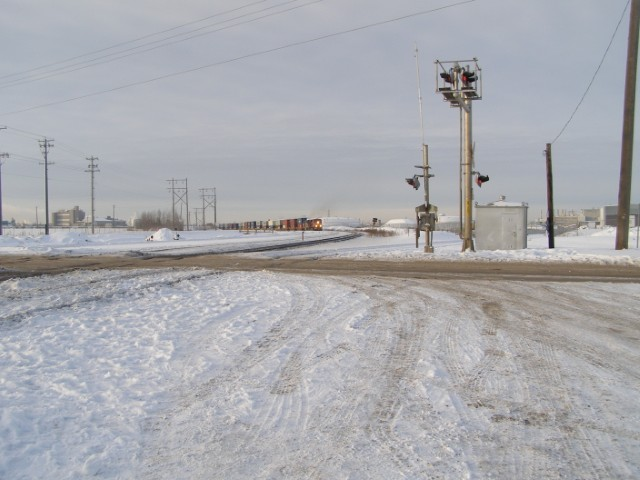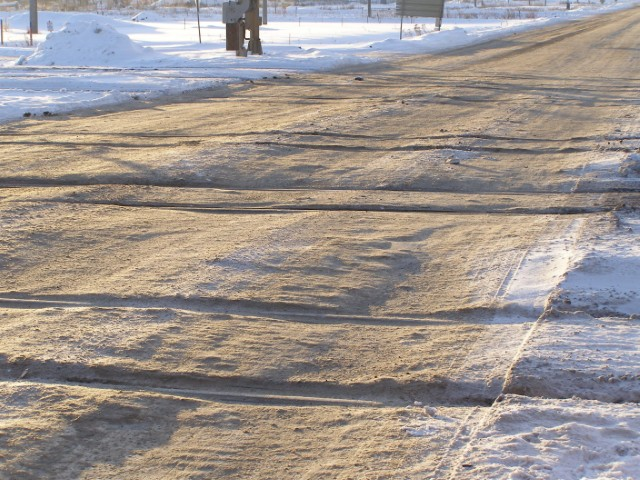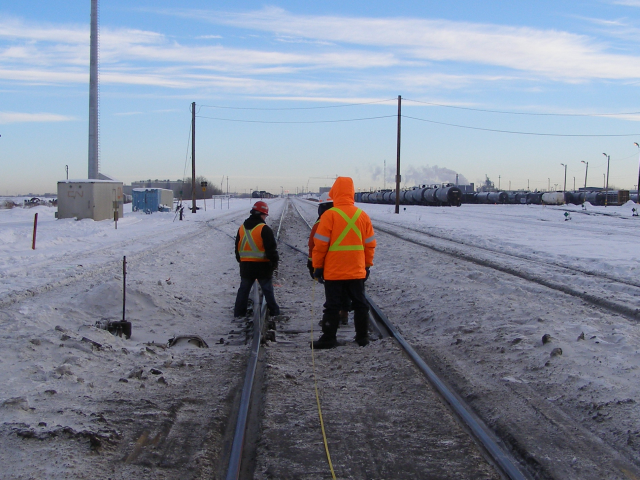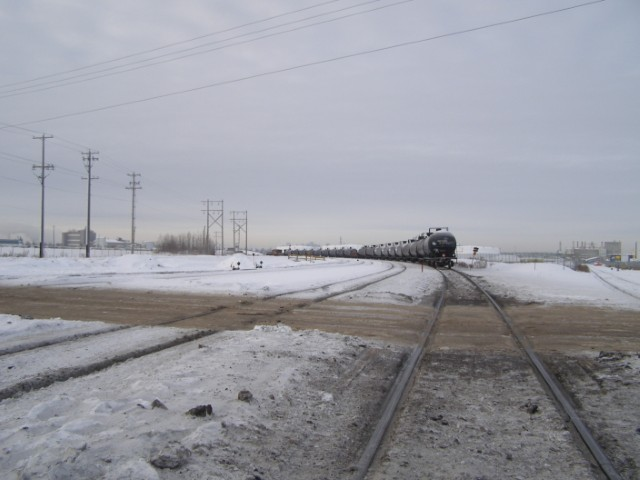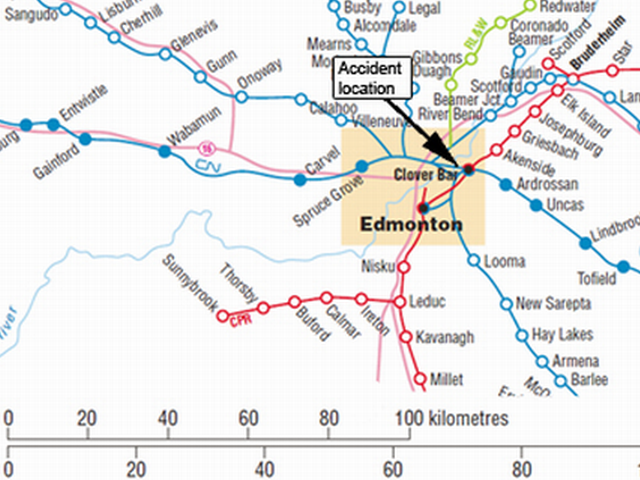Contractor employee injury
Canadian National
Train Q-19051-24
Mile 259.20, Wainwright Subdivision
Clover Bar, Alberta
The occurrence
At approximately 0909 Mountain Standard Time on 26 December 2012, Canadian National freight train Q-19051-24 was proceeding eastward from Edmonton, Alberta, to Wainwright, Alberta, when it struck 3 A&B Rail Services Limited employees at approximately Mile 259.20 of Canadian National's Wainwright Subdivision, near Clover Bar Yard. The 3 employees, who were performing snow-clearing activities near a switch, were admitted to hospital; 2 of them were seriously injured.
Media materials
News releases
Inadequate safety training led to 2012 accident that injured three railway track maintainers in Edmonton
Read the news release
Deployment notice
Transportation Safety Board of Canada deploys a team to investigate a rail accident near Edmonton, Alberta
The Transportation Safety Board of Canada (TSB) is deploying a team of investigators to Edmonton, Alberta, to the site of a rail accident. The TSB will gather information and assess the occurrence.
Download high-resolution photos from the TSB Flickr page.
Class of investigation
This is a class 3 investigation. These investigations analyze a small number of safety issues, and may result in recommendations. Class 3 investigations are generally completed within 450 days. For more information, see the Policy on Occurrence Classification.
TSB investigation process
There are 3 phases to a TSB investigation
- Field phase: a team of investigators examines the occurrence site and wreckage, interviews witnesses and collects pertinent information.
- Examination and analysis phase: the TSB reviews pertinent records, tests components of the wreckage in the lab, determines the sequence of events and identifies safety deficiencies. When safety deficiencies are suspected or confirmed, the TSB advises the appropriate authority without waiting until publication of the final report.
- Report phase: a confidential draft report is approved by the Board and sent to persons and corporations who are directly concerned by the report. They then have the opportunity to dispute or correct information they believe to be incorrect. The Board considers all representations before approving the final report, which is subsequently released to the public.
For more information, see our Investigation process page.
The TSB is an independent agency that investigates air, marine, pipeline, and rail transportation occurrences. Its sole aim is the advancement of transportation safety. It is not the function of the Board to assign fault or determine civil or criminal liability.
